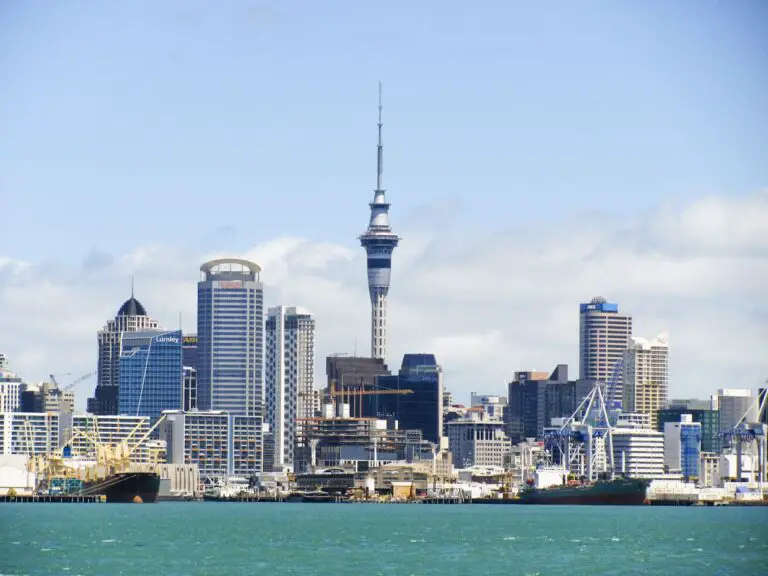Australia vs New Zealand: Where Should You Move in 2024?
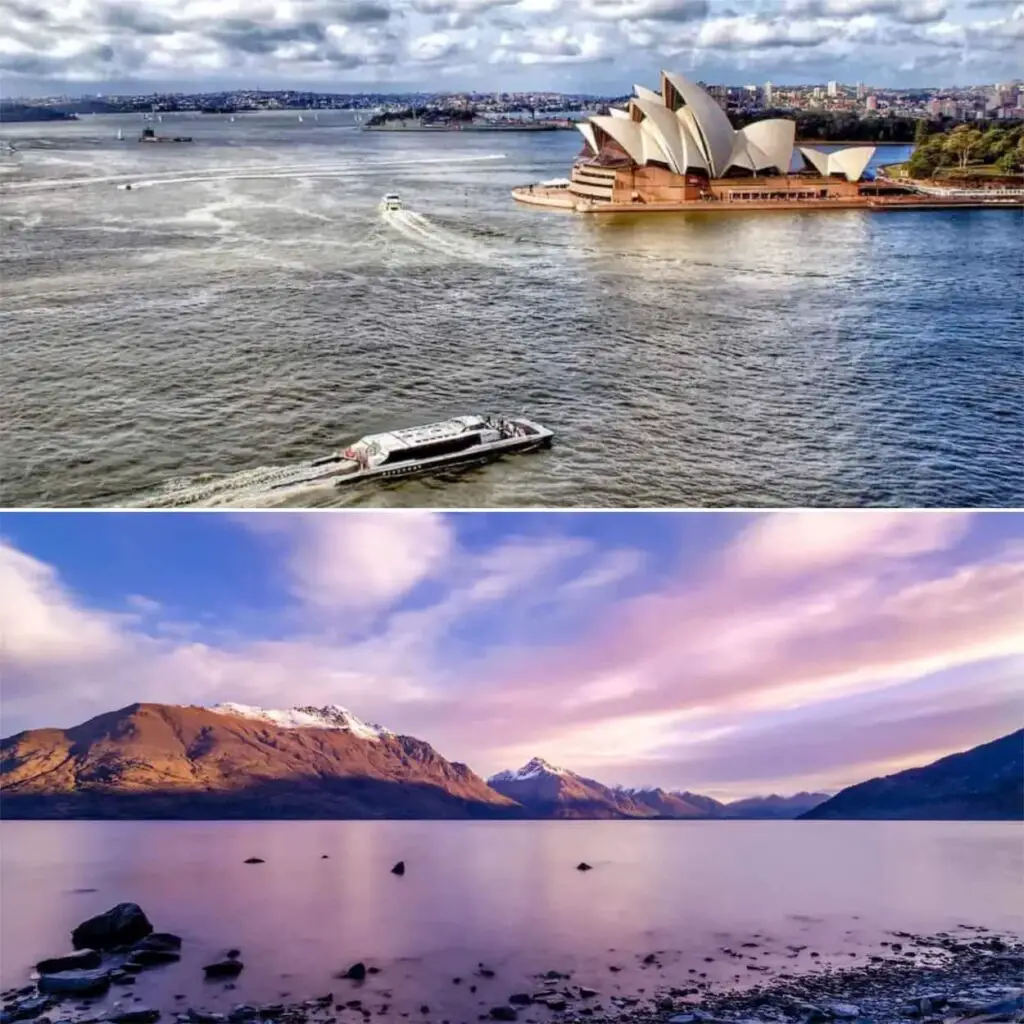
There is a constant fight between Australia and New Zealand for the best place to live in the southern hemisphere. Both deserve your attention, and both have their pros and cons. Australia or New Zealand, don’t know where to move? No worries! We got you.
Australia and New Zealand are exceptionally beautiful countries with a lot to offer, so deciding where to move to can be a difficult decision. Australia is a large land of diverse cultures and better job opportunities, while in New Zealand, you will have an incredible lifestyle and much more room to yourself.
But the choice is yours to make! This article explores the pros and cons of living in Australia vs New Zealand and helps you come to a decision about which one is the best for you.
Related: How to move to New Zealand from Australia.
Living in Australia vs New Zealand
Australia and New Zealand are located in the southern hemisphere of the world. Australia is situated to the west of New Zealand and separated by the Tasman Sea.
Both countries are located in the Oceania region, with Australia being the largest of the two and covering approximately 7.7 million km². New Zealand is smaller, covering around 268,000 km².
Australia is known for its outdoor lifestyle and relaxed culture, while New Zealand is known for its stunning scenery and outdoor activities such as hiking, skiing, and water sports.
To learn more about how to move to Australia from New Zealand, read our guide.
Australia could be a better fit if you enjoy a laid-back lifestyle and warm weather. If you prefer outdoor adventure and cooler temperatures, New Zealand may be more your style.
Your decisions could be influenced by various things, including the cost of living, weather, house price, income, and quality of life.
Below is a comprehensive picture of the differences and similarities between the two countries and which one could be the best choice for you.
Learn more about the qualify of life in New Zealand in our YT video:
Cost of living
You may have access to a wide range of opportunities and experiences, like a wide range of jobs, if you relocate to Australia or New Zealand.
However, before moving through with your choice, it wouldn’t hurt to determine whether you have enough money to shift from your current cost of living to that of the new place. Also, you need to estimate whether your potential salary will allow for a comfortable life, considering typical expenses.
Both Australia and New Zealand are pretty expensive countries to live in, with high costs for housing, food, and other essentials. However, Australia generally has a higher cost of living than New Zealand, especially in larger cities like Sydney and Melbourne.
Read the full guide on the cost of living in New Zealand.
To have a really good quality of life in Australia, expect to spend about US$6,250 (NZ$10,016) as a family of four and US$3,250 (NZ$5,208) as a single.
Generally, a family of four will make it with about US$4,626 (NZ$7,413) per month. A single can live on about US$2,400 (NZ$3,846) monthly.
Similar to Australia, some cities and towns are more expensive than others. Auckland, the biggest city, is the most costly. A single needs about US$2,989 (NZ$4,791), and a family US$5,322 (NZ$8,530) to live comfortably in New Zealand’s largest and most desirable city.
That said, tents and houses are more affordable in New Zealand than in Australia.
Read a full guide on the cost of living in Australia vs New Zealand.
Living in New Zealand is only slightly cheaper than living in Australia. But the main point of moving to Australia is that you will earn more money there.
Let’s look at the cost of living in Auckland and Sydney, the two major cities of each country.
The cost of living in Sydney is 11% more than in Auckland. Sydney is the 10th most expensive place in the world, while Numbeo puts it in the position 37th.
Auckland ranks as the 53rd most expensive costly city to live in the globe, according to Numbeo. At the same time, Melbourne, another popular city in Australia, is ranked 55th.
The total monthly cost of living in Sydney for one person is US$2,294 (NZ$3,676), and US$2,043 (NZ$3,274) in Auckland.
A comparative description of different expenses is such:
| Consumer prices in Sydney are 11.5% higher than in Auckland |
| Consumer prices, including rent in Sydney, are 22.1% higher than in Auckland |
| Rents in Sydney are 44.6% higher than in Auckland |
| Restaurant prices in Sydney are 11.6% higher than in Auckland |
| Groceries prices in Sydney are 7.3% higher than in Auckland |
A breakdown of the average typical expenses when living in Australia (Sydney) and New Zealand (Auckland) is such:
| Expenses | New Zealand | Australia |
| Water (0.33-liter bottle) | NZ$3.40 | NZ$3.48 |
| Average lunch at an inexpensive restaurant | NZ$25 | NZ$26 |
| Cappuccino | NZ$5.55 | NZ$5.13 |
| Transportation monthly pass | NZ$215 | NZ$231 |
| Rent for a 2-bedroom house | NZ$2,800 | NZ$4,000 |
| Utility Bill for a 2-bedroom house | NZ$230 | NZ$275 |
| Internet | NZ$85 | NZ$90 |
Here are some of the expenses you will face in Auckland vs Sydney in US$:
| Item | Average costs Sydney, Australia | Average costs Auckland, New Zealand |
|---|---|---|
| Rent for a one-bedroom apartment | $1,331 | $1,163 |
| Utilities | $102 – one person $185 for two people and $256 for a family of four | $102 – one person |
| Food and groceries | $395 – $490 | $504 |
| Transport (car) | $202 | $252 |
| Petrol | $1.41 | $1.84 |
| Transport (public) | $127 | $136 |
| Health insurance | $112 | – |
| Internet | $49.4 | $52.2 |
| Groceries and eating out | $80 – $280 per week | $80 – $250 per week |
| House price per m2 | $7,128 | $6,141 |
| Total | $2,294 | $2,043 |
| Monthly salary after tax | $4,771 | $2,900 |
Average prices across Australia are:
| Item | Average cost (US$) |
|---|---|
| Rent for a one-bedroom apartment | $400 a week |
| Groceries | $130-200 a week |
| Car insurance | $2,000/year |
| Utilities | $150 – $274/month |
| Mobile phone | $30/month |
| Home internet | $70 to $95/month |
| Meals out | $50–60/week |
| Car | $90 a fill |
| Public transport | $250 for a monthly pass |
| Beer/wine | $5-10 |
The most significant difference between living in Auckland vs Sydney is that you will get must better salary in Sydney.
House prices
New Zealand is one of the most expensive countries to buy a home in the world. The average price of the house is about NZ$1,000,000.
New Zealand has lots of room to expand its housing stock. But, as housing costs continue to rise, many middle-class people find it to be unaffordable.
Auckland is both the fastest-growing and most costly city in New Zealand for home purchases. Nonetheless, this city has not been left behind by New Zealand’s decline in prices. Auckland’s residential housing market is competitive.
Homes in Auckland’s Orakei neighborhood cost an average of NZ$2,125,000, making it one of the most expensive neighborhoods in Auckland.
While the median price of a home in Gulf Harbor is NZ$835,000, it’s more reasonably priced.
In Australia, it costs more to rent or own a home. The cost of living in Melbourne and Sydney is among the highest in Australia. You will spend at least US$5,434 (NZ$8,708) per square meter to buy an apartment in or near the main city.
Visa and PR
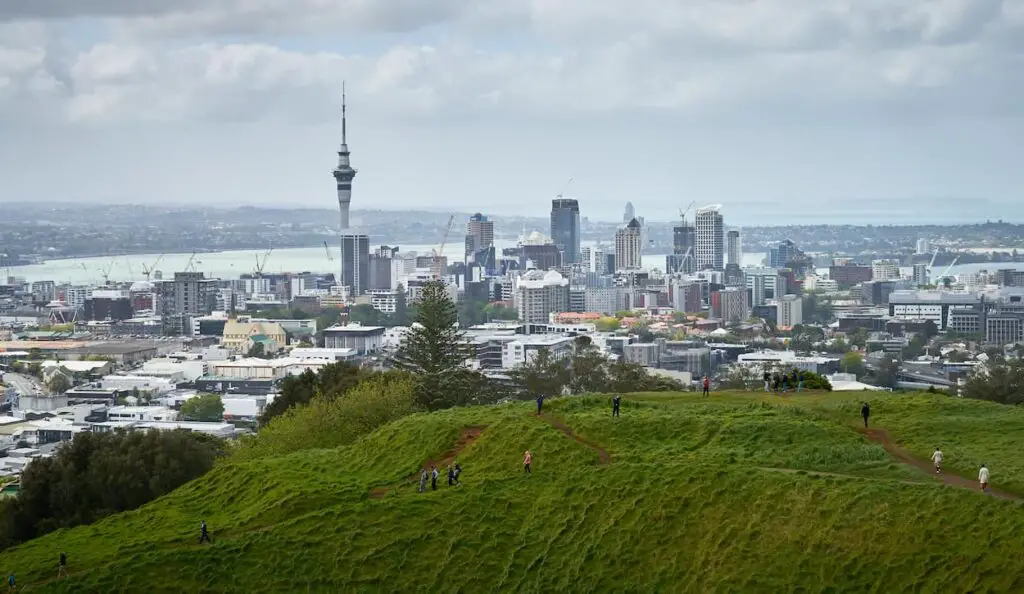
Both Australia and New Zealand are well-liked destinations for immigrants, and each has its pros and cons. Each nation has various procedures and requirements for obtaining permanent residency (PR).
New Zealand offers a points-based system that takes variables like age, abilities, degrees, and experience into account, making it simpler to obtain a PR there than it’s in Australia.
Also, if you study in New Zealand, you get a post-work visa which can be from 1 to 3 years. In Australia, this situation is less straightforward, and even so, one might get a visa only for 2 years.
In contrast to Australia, New Zealand makes it quite simple to obtain permanent status. New Zealand will grant you a PR two years sooner. However, obtaining the necessary number of points to be eligible for residency can be challenging.
To apply for permanent residency in New Zealand, you must first acquire a resident visa. You must be medically fit and should be living in New Zealand for two years.
After living in Australia for at least 4 years, foreigners are eligible to apply for a PR. They had to have remained in Australia throughout these four years with a valid Australian visa.
You must satisfy Australia’s minimal health requirements to be eligible for permanent residency. Australia has some of the toughest health regulations, making compliance difficult.
Besides, if you are looking to apply for an Australian skilled migration visa, it’s mandatory to have a good skills assessment from an Australian skill-assessing institution or authority. This process can be pretty complex.
In Australia, the maximum age for skilled immigration is 10 years shorter than in New Zealand. Therefore, anyone above 45 years old won’t be able to move to Australia as a qualified professional. New Zealand is much more welcoming in that sense, allowing applicants aged up to 55.
Which country is easier to get a PR, Australia or New Zealand? Figure out in this article.
Job opportunities
Both countries have strong economies and low unemployment rates, but the job market can vary depending on your industry and qualifications. Australia is a larger country, hence, a larger economy and more job opportunities.
Australia’s economy is healthy and diverse, providing a variety of job possibilities in different industries.
The most in-demand job sectors are healthcare, software engineers, developers, and other IT professionals in Australia’s burgeoning IT sector.
In fact, thousands of nurses move to Australia from New Zealand because of the range of opportunities they have overseas.
There is an increase in the need for teachers and other education specialists in Australia. With the wealth of natural resources, the mining sector offers jobs for tradespeople, engineers, and geologists.
On the other hand, in New Zealand, there is a significant demand for construction workers due to the country’s expanding economy and population. Software developers, engineers, and other IT specialists are in high demand.
The manufacturing sector is essential, and positions are available in management, production, and quality assurance.
In addition, there are employment prospects in accounting, finance, and insurance, and these fields are well-established in New Zealand.
Salaries
In New Zealand, with an average salary of only about NZ$58,000 (US$36,189) annually, you are considered a good earner if you make above NZ$70,000 annually.
The usual wage for a school teacher is NZ$80,000, while lower-qualified professionals like bakers make approximately NZ$50,000.
Read the full guide on salaries in New Zealand vs Australia.
That said, the majority of New Zealanders make between NZ$40,000 to NZ$80,000 annually.
In most cases, an employee will enjoy a higher income when working in Australia. The average salary in 2022 was AU$1,805 per week or AU$86,640 (US$57,697) annually.
If you’re searching for a job in a major city like Sydney, you can expect to earn a bit more than the average salary.
Here are some of the average salaries for typical jobs in Australia:
| Job | Average annual salary (AU$) |
|---|---|
| Lab Technician | $74,100 |
| Photographer | $77,074 |
| Service Engineer | $86,994 |
| Traffic Engineer | $97,376 |
| Technical Engineer | $100,004 |
| Design Engineer | $107,250 |
| Developer | $109,998 |
| Engineer | $112,469 |
| Full Stack Developer | $120,000 |
In comparison, some typical salaries you will come across in New Zealand in different industries are:
| Sector | Average annual salary (NZ$) |
|---|---|
| Accounting and Human Resource | $78,735 |
| Banking and Finance | $79,230 |
| Education and Childcare | $76,552 |
| Engineering | $91,932 |
| Healthcare | $98,531 |
| Information Technology | $83,074 |
| Legal | $85,554 |
| Science | $77,161 |
| Security and Law Enforcement | $68,446 |
| Construction | $69,174 |
As you can see, even average salaries are very different, and the average worker has a significantly higher wage in Australia. But in the end, money it’s not why people move to New Zealand. It’s all about lifestyle, nature, and space. Set your priorities right and go from there.
Study abroad
Both Australia and New Zealand are popular study destinations for international students, and both offer excellent academic programs.
When it comes to deciding between the two countries, it relies on your particular preferences, priorities, budget, and respective subject of study.
One is clear, studying in Australia as an international student is more expensive than in New Zealand.
The average tuition fees in Australia about US$46,000 for a Master’s program are, while it’s about US$35,000 for the same program and for a full duration in New Zealand.
That said, both nations have top-notch educational institutions and systems, but there are differences in the organization and delivery of education.
In general, the Australian education system tends to be more structured and formal, while New Zealand’s education system is more flexible and personalized.
The New Zealand government makes significant investments in education, making it one of the best systems in the entire world.
Studying in New Zealand provides a huge opportunity to explore a new culture while simultaneously getting a high-quality education that is recognized globally. In addition, students enjoy a post-study work visa, which is granted for 1 to 3 years, depending on the length of the program.
During their studies, students are allowed to work for up to 20 hours per week.
To study in Australia, international students must possess a current student visa, like in New Zealand. International students can do part-time jobs while studying in Australia (same as in New Zealand). This can lower living expenses and offer priceless work experience.
Undergraduate, graduate, and doctorate degree programs are all available at New Zealand’s and Australia’s universities. You must have finished a recognized qualification in your home country and meet the English language requirements to be eligible for admission to a chosen institution.
Consequently, studying in New Zealand vs Australia is very similar, but you will have a larger group of international students and higher tuition fees in Australia.
Weather and Climate

Australia is known for fantastic weather, where summer is advised to be present all year around. On the other hand, New Zealand is more known for its rain, but you will enjoy stunning greenery in return.
New Zealand has a number of climate zones, but most of the country has a moderate climate. The South Island has colder weather than the North Island, which is typically warmer and more humid.
With lots of sunshine and rain dispersed throughout the year, the climate of New Zealand is typically mild and pleasant. Yet, weather patterns can be unexpected, so tourists should be ready for unforeseen shifts in the weather.
With a variety of climate zones, from tropical in the north to temperate and desert in the south, Australia is a sizable and diversified place. That said, the majority of the population is scattered on the coast because the climate is most pleasant there.
The southern hemisphere’s position and its proximity to the ocean significantly impact the climate.
Not many people want to live in the desert, so the largest part of the country is empty. In contrast, you can live in any part of New Zealand.
But the majority of people still choose the North Island and cities like Auckland, Wellington, and Christchurch, with many Europeans relocating to Southern Christchurch due to the similarity in climate.
However, with scorching summers and chilly winters in the south, and warm, tropical weather in the north, Australia generally experiences a wide range of temperatures.
It indeed has more extremes, from incredibly hot days with +40°C to even minus in some regions. Australia is also known for its recurrent droughts and bushfires.
In the end, it totally depends on your preferences. For a warmer, humid climate, head to Australia. New Zealand’s weather isn’t much different from countries like the UK or central Europe.
Read more about the weather and climate of New Zealand.
Best cities to live in
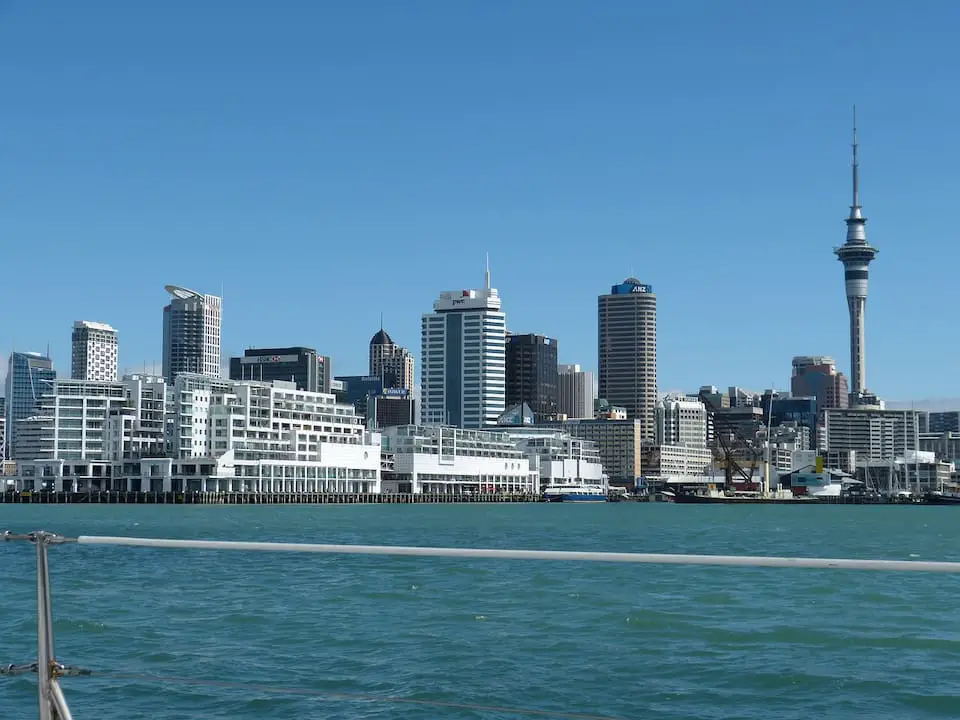
Depending on your choices and priorities, Australia and New Zealand both have many wonderful cities to relocate to. Check out the best cities to live in in New Zealand.
One of the popular cities to live in Australia includes Sydney, which is well known for its stunning harbor, beaches, and vibrant cultural scene. It has a high cost of living but also high salaries accompanied by an excellent quality of education to offer.
To learn more about how to move to Australia from New Zealand, read our guide.
Melbourne is Australia’s cultural capital, famed for its laneways, art, music, and diverse food.
The gorgeous parklands, wine districts, and cuisine festivals of Adelaide are its most well-known features. Canberra, the nation’s capital, is renowned for beautiful architecture, museums, art galleries, and festivals.
Whereas the best city to live in New Zealand is Auckland, which is New Zealand’s largest city. It’s known for its beaches, volcanic landscapes, and thriving arts and cultural scene.
New Zealand’s capital, Wellington, has a stunning harbor, which you won’t find anywhere else, but it’s also the coolest capital in the world, with a lively arts scene, excellent cafes, and restaurants. Dunedin is best known for its Scottish heritage, vibrant student atmosphere, and untouched natural beauty.
Lastly, there are so many smaller but not less wonderful places to live in New Zealand. You definitely shouldn’t focus only on the main cities.

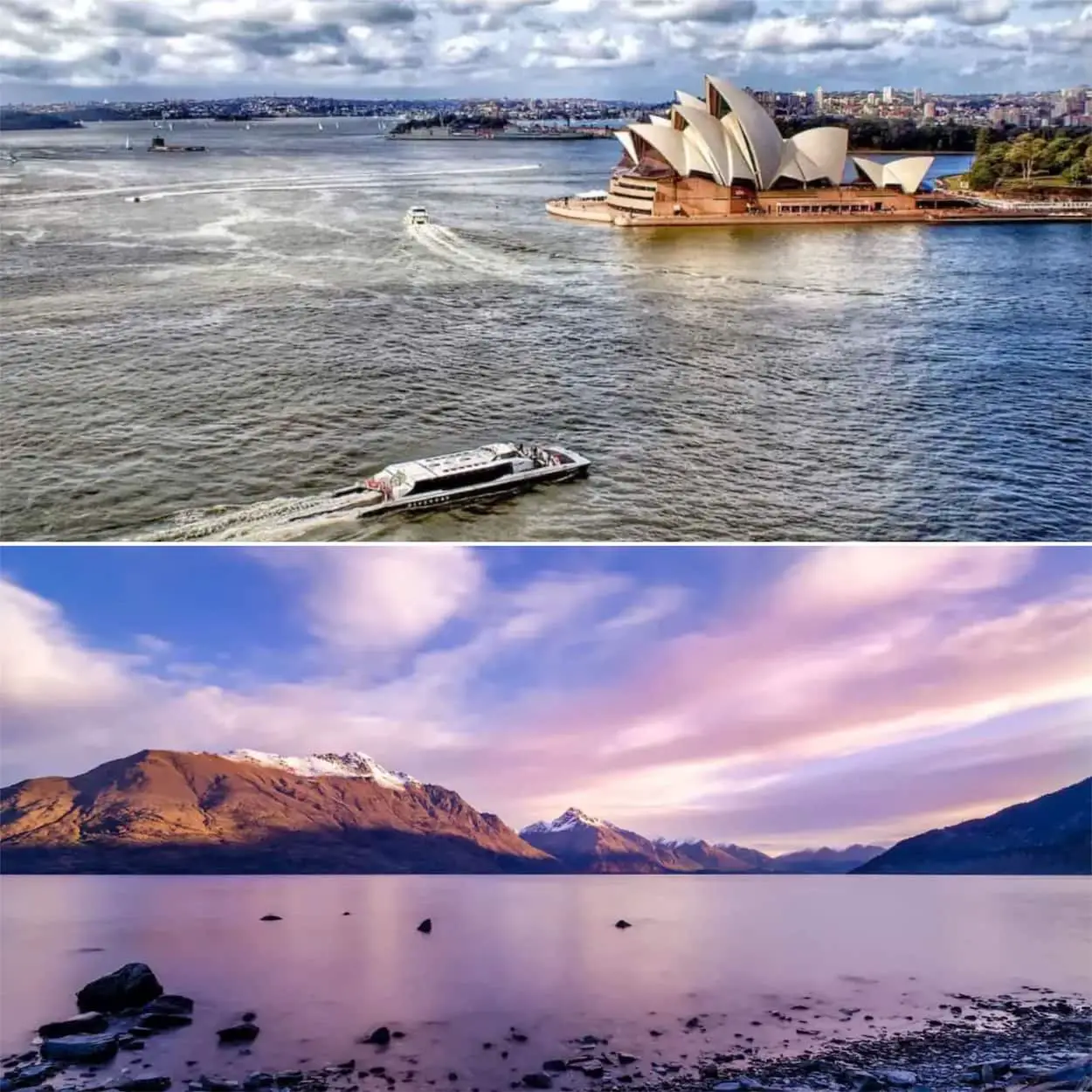
![How To Buy a Motorcycle in New Zealand: Ultimate Guide [2024]](https://simplenewzealand.com/wp-content/uploads/2023/04/Depositphotos_39664953_L-1-768x512.jpg)
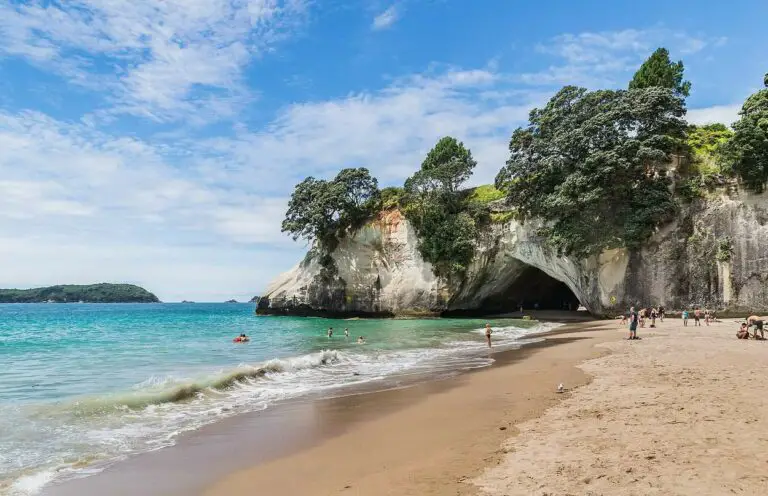
![New Zealand vs UK: Which Country Is Better For Living? [2024]](https://simplenewzealand.com/wp-content/uploads/2023/01/andreas-sjovall-ZZUPu8ARD8U-unsplash-768x432.jpg)
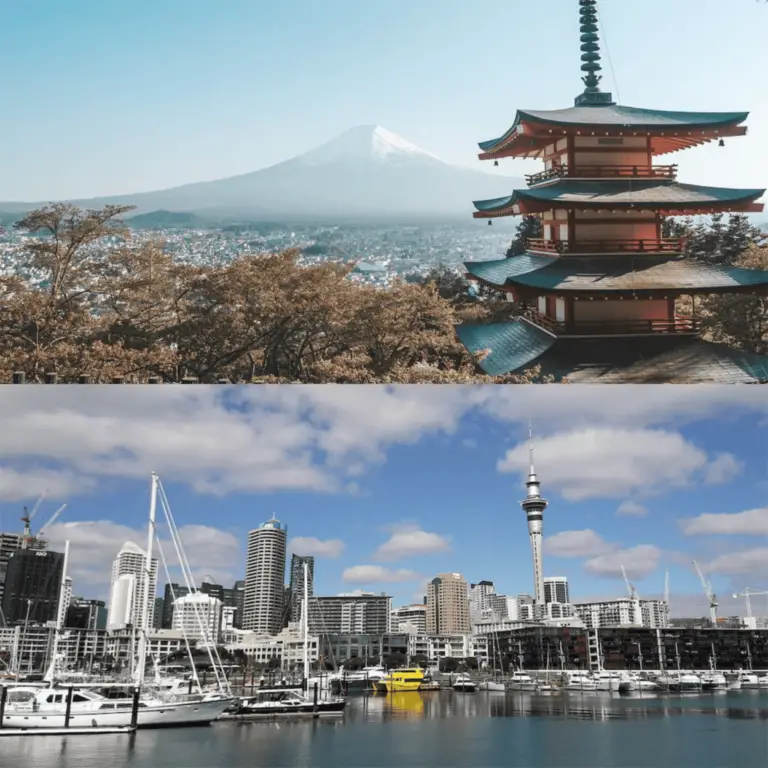
![12 Pros and Cons of Living in Christchurch [2024]](https://simplenewzealand.com/wp-content/uploads/2023/09/Christchurch-1-768x512.jpg)
